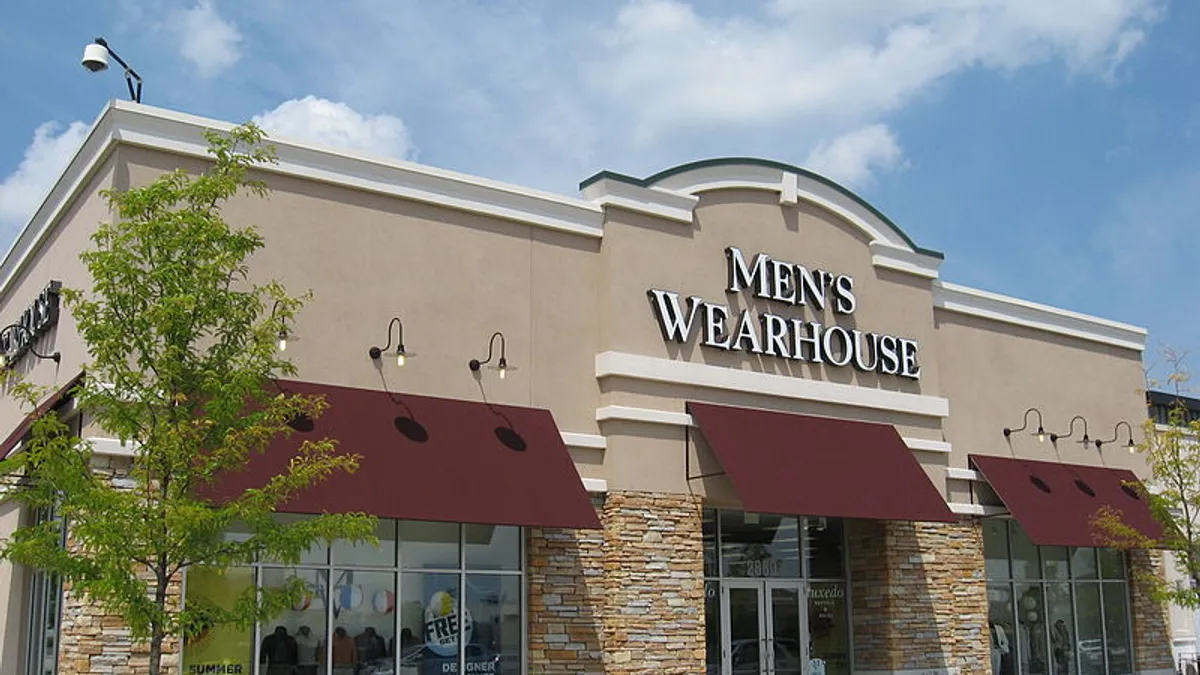Dive Brief:
- Tailored Brands CEO and President Dinesh Lathi is stepping down from his post, effective March 26, the menswear retailer said in a press release.
- After Tailored Brands' exit from bankruptcy in December and the recent securing of new emergency financing, Lathi and the board "mutually agreed that this is the right time to re-evaluate the skills and experiences needed in the CEO role as the Company prepares for its next chapter of growth and success," the retailer said.
- Tailored Brands board members Bob Hull and Peter Sachse are set to serve as interim co-CEOs while the board searches for a permanent chief.
Dive Insight:
Lathi stepped into the CEO role at Tailored Brands, owner of the Men's Wearhouse and Jos. A. Bank brands, a little less than two years ago after serving as the suit specialist's chairman since 2017 and sitting on the board since 2016. Before that, he was CEO at online home decor specialist One Kings Lane and served in various executive spots at eBay.
Tailored Brands tapped Lathi for the board because of his financial expertise and background in the digital space. When he was appointed CEO, then-Chairman Theo Killion said of Lathi, "Dinesh has demonstrated a deep commitment to building and leading a customer-obsessed company that empowers our talented employees with technology, data, and the creative resources needed to exceed customer expectations and position Tailored Brands for long-term sustainable growth."
Tailored Brands' persistent sales declines continued under Lathi's tenure. He also was at the helm when Tailored Brands jettisoned the high-performing Joseph Abboud brand in a move to reduce the company's debt load.
Later that year, the company took more dramatic steps to reduce its debt. Amid the upheaval in the workwear and apparel space brought by COVID-19, Tailored Brands filed for bankruptcy. Chapter 11 allowed the company to shed debt and reorganize. Just days before bankruptcy, Lathi was approved for a nearly $1.8 million bonus, a practice that has become common among companies headed into Chapter 11.
In a recent report, Fitch analysts offered Tailored Brands as an example of a coronavirus-era bankruptcy that was "strategic" rather than immediately necessary for survival. The retailer "did not face near-term maturity walls and likely could have weathered the coronavirus-related effects, at least in the immediate-term," the analysts wrote.
Tailored Brands exited bankruptcy in less than six months and immediately ran into liquidity issues. Earlier this month, the company secured a $75 million emergency loan to save it from the risk of another bankruptcy, according to a notice to a group of shareholders who received stock in Tailored's reorganization.
Some of those shareholders are investigating the loan, which came from the company's majority shareholder, a financial firm that is also a current lender. Those shareholders are demanding answers to Tailored's precise financial performance and the circumstances around the loan, which could wipe out the original claims they received stock for.
Following its Chapter 11 restructuring, Sachse said that Tailored Brands is "delivering enhanced online and omnichannel options to shop seamlessly across channels, piloting new in-store experiences to make shopping safer and more enjoyable, and offering an expanded product assortment."













